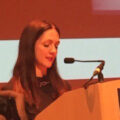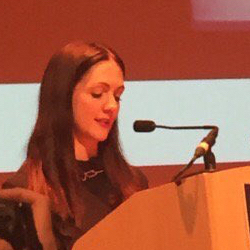Q – Hi Becky, thanks for joining us today. To start, do you have any advice for someone who’s had a book published that’s doing well, but could be doing better?
Becky Fincham – Happy to be here! As I’m sure you’re aware, publicity can be very focused on publication date, and is set up in the anticipation of it.
However, once the publication month has passed it doesn’t have to be the end of the coverage, particularly if you’ve been getting good reviews.
One way to extend the coverage period is to keep an eye on news stories and look out for anything timely that you could contribute to in terms of a feature or interview.
If there are any new trends or discoveries in your field, make sure you’re being included in that conversation by pitching articles or interviews.
Equally, events can be a great way to create a longer tail for your publication, and the visibility of event promotion helps to keep your book in the foreground.
I’d also use this time to fill in any gaps in your campaign.
Double-check that everyone who needs to see the book has seen it — from literary editors to bloggers — and make sure they know about all the great acclaim it has had so far!
If social media is something you feel comfortable using then it can be very beneficial.
– Becky Fincham
Q – So, how would you go about getting interviews and arranging events?
BF – In terms of interviews, make sure that what you’re pitching is topical and relevant to the place you’re pitching it to.
One way to do that is to pay close attention to coverage for books like yours, or in a similar genre, and research old coverage for books to see the type of places they’ve been covered.
It’s a case of approaching appropriate media channels at the right time.
For events, just as you’d pitch your book to a bookseller or literary agent when you pitch your book for a bookshop event or to a festival make sure you hit them with an offering that is appropriate to them but also reflects the uniqueness of your book.
Have a look at the festival or bookshop event copy to see how your book might fit into their programme.
Q – Apart from the in-house team at the publisher, is a good publicity firm useful for getting interviews and organising events?
BF – Yes, and freelance publicists can be very useful for organising interviews and events, and extending the life of your campaign, too.
Publicity schedules in-house at a publisher tend to be focused around publication, so an external publicist can help exploit any further opportunities, and look at a longer-term plan and broader profile raising for the author.
Q – Does this work differently for digital-only books versus hard copies?
BF – A freelance publicist will be able to approach a campaign for a digital-only publication in the same way they can for a print publication — the difference is that they are likely to tailor the media to suit.
At the moment, broadsheet literary reviewers in the national papers tend to only review hard copies, whereas bloggers and certain genre reviewers would be just as open to a digital-only review copy.
Some of it is about the practicality of getting the books into the reviewers’ hands and what their reading preferences are.
Q – I’m wondering about social media — Twitter in particular. Is it worth tweeting regularly? I attended a talk by Joanne Harris and she seems to use it quite a lot.
BF – If social media is something you feel comfortable using then it can be very beneficial – it connects you with the broader writing and publishing community, increase your visibility and keep you in the conversation.
However, it can also be a big distraction when you’re trying to write, so it’s a case of finding a way that works for you. Overall, though, I’d say yes. It can be really helpful to tweet regularly if you can.
It’s a way to shape an identity for yourself as a writer, let the wider world know what your interests are and also watch how other writers, like Joanne Harris, use it to their benefit and to promote their work.
There are some great websites that take features from authors if they’re timely and relevant.
– Becky Fincham
Q – That’s really helpful. I’m not an avid social media user, but I do find it interesting. Do you know of any authors who have used social media in the guise of their characters, rather than as themselves?
BF – In the earlier days of Twitter, authors and publishers did this a lot as it seemed like an easier way to bring the book to life on social media, with varying success.
There are lots of people on Twitter who do well with personas, rather than characters directly.
For example, if you look at Tom Cox’s @mysadcat twitter feed, or personas such as Brian Bilston, the Poet Laureate of Twitter, or even The Gentle Author who is behind Spitalfields Life, characters can be a way of creating a sense of mystery and interest around a profile.
I think the most important thing is that if you’re using a voice, it comes across as authentic. If it’s authentic, then it will engage people and they’ll start listening.
Q – What’s your opinion on Goodreads giveaways and paid Amazon ads?
BF – I think Goodreads can be really helpful for generating a good volume of reviews and directing interest on Amazon, so I’d certainly say giveaways and making your book available to key influencers can be very helpful in raising the profile of your book.
I’d need to look at Amazon advertising a little closer, and, as with any online marketing, I’d say it’s worth checking the measurability of any campaigns and your own awareness of them for other books before committing.
Q – I’ve been working on publicising my debut (published by HQ), but as I don’t have an agent I feel a little like I’m flailing around in the dark. Bloggers and Twitter aside, do you have any more tips for digital books?
BF – I’d say features are a really strong way ahead. Interviews, opinion pieces and personal stories relating to your book, its origin story or its themes can be a really strong way to engage with readers.
There are some great websites that take features from authors if they’re timely and relevant, or will run Q&As if there’s a story to tell. If you’re writing in a particular genre, head to those outlets first.
Also, don’t forget local press! Local newspapers, local radio — local to you and/or the book’s location — are a great way of getting a groundswell of support, and can often lay the foundations for further national coverage.
Events can be a great way to create a longer tail for your publication.
– Becky Fincham
Q – What are your top tips for a naive and aspiring author in terms of responding to requests for signings, interviews or festival appearances? Should you ask for certain things – for example, to read a section of your book?
BF – Always say yes! I’d always let myself be lead by the person asking, too. They’ll know the format that works for them — whether they’d like a reading or a Q&A — and will be looking to optimise the event so it sells as many books as possible.
I’d start by asking them how they envisage the event running and what they’d like you to do.
If you don’t know who else you’ll be reading with or on a panel with, I’d ask that so you can be prepared for who you might be alongside. If they want you to read, find out how long for.
If the event has a chairperson who is interviewing maybe three authors for a panel, then I’d always try to speak to the chair ahead of the event.
You could do this over email, phone or meet them an hour beforehand in the green room to chat informally about how the conversation will go.
In terms of which section to read, you know your book best, so go with something dramatic or striking that will also work well out of context. Opening chapters can be good for this.
I’d also practice reading the section to make sure you don’t overrun or cut yourself short. If they’ve asked for 5 minutes, give them 5 minutes. That can take a bit of practice.
Q – Becky, thank you so much for your time this evening and for the brilliant advice. It’s been lovely chatting.
BF – Thank you all so much for having me! You’ve asked some great questions – all the right ones, which is a brilliant sign. I wish you the very best of luck with your books.






















